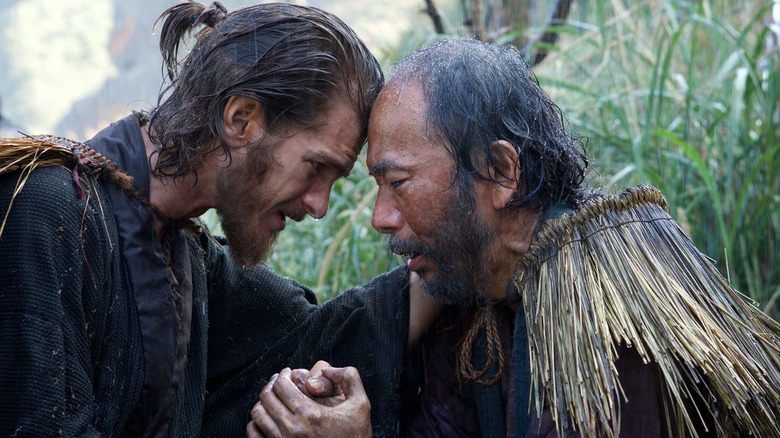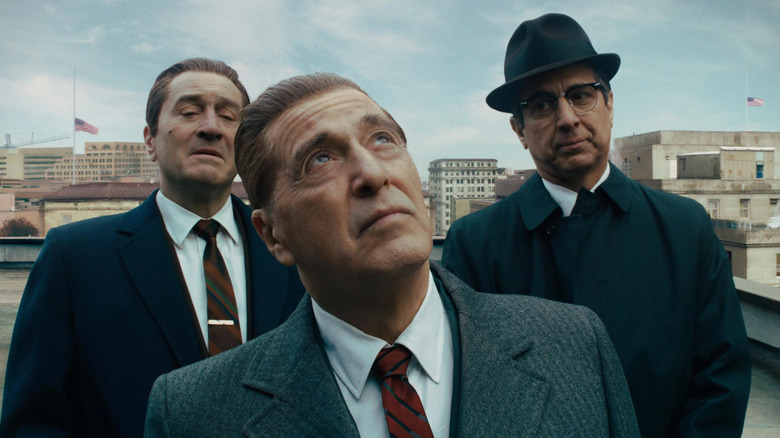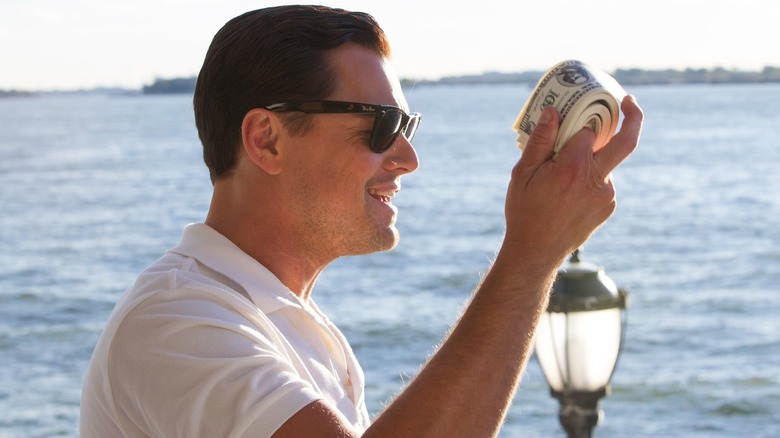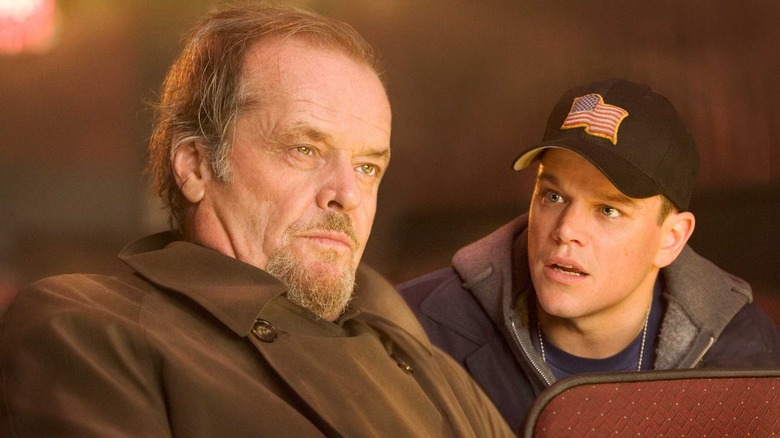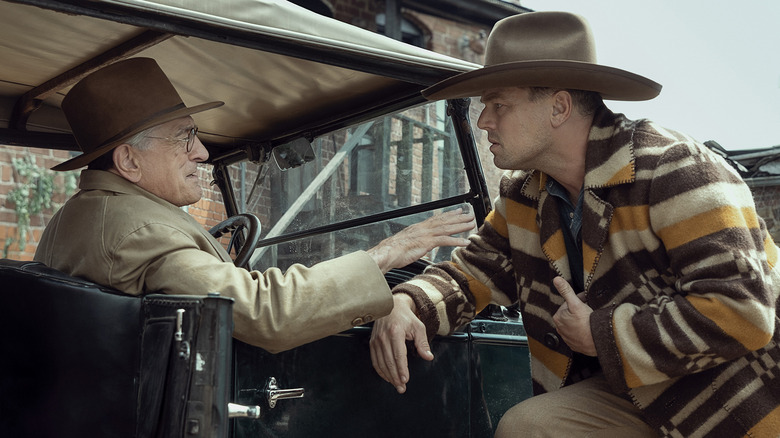I Would Thanos-Snap Away Every MCU Movie To Save A Single Martin Scorsese Picture
Like Tony Leung at the end of "In the Mood for Love," I have a secret I would prefer to whisper into a hollow and cover up with mud: I don't worship at the shrine of Martin Scorsese.
Wait, come back! If you've read the headline of this article (and I'm assuming you did), then you know this isn't a Scorsese hit piece vying for rage clicks. When I say I don't worship Marty, that just means I'm not what you might call the Scorsese equivalent of a Swiftie. (Scorsie?) I respect the hell out of him as a craftsman and especially his efforts when it comes to film preservation and bringing greater attention to under-seen international cinema. It's just that I don't, per se, find his preoccupations as a storyteller as fascinating as he does, which is really more a matter of personal preference and not a slight against his art.
Therein lies the reason why Scorsese's work is invaluable. Whichever way you feel about his films, you always know they're his. Perhaps more importantly, you understand why he directed them. "The Color of Money" is the closest thing Scorsese has made to a franchise movie (it's technically a legacy sequel to "The Hustler"), and yet even calling it that feels disingenuous. Marty didn't direct it because he wanted to expand the "Fast Eddie" Felson cinematic universe; he directed it because the story of Paul Newman's aging pool hustler spoke to him, and that comes through in every inch of the film (from its showman-like camerawork to its boisterous soundtrack and Thelma Schoonmaker's meticulous editing).
In other words, even the biggest time Scorsese essentially worked as a director-for-hire, he did so as a form of self-expression. And that makes "The Color of Money" alone worth saving over the entire Marvel Cinematic Universe.
Marty vs. Marvel
Let's back up a little. Unless you've been living under a rock with no Wi-Fi connection, you've likely gotten wind of the Martin Scorsese vs. Marvel discourse. It all began in 2019 when Marty told Empire Magazine that he tried to get into the MCU (then the most popular franchise on the planet), "But that's not cinema." The ensuing online discourse rapidly took a turn for the worse, with one side painting Marty as a big ol' meanie who hates fun and the other side suggesting that anyone who likes the MCU should be branded a philistine and a shill for corporations. (In case you're curious, I personally took one look at what was happening and swiftly "Noped" out, Daniel Kaluuya-style.)
Not long after, in an essay written for The New York Times, Scorsese eloquently laid out his larger case against the MCU:
"Many of the elements that define cinema as I know it are there in Marvel pictures. What's not there is revelation, mystery or genuine emotional danger. Nothing is at risk. The pictures are made to satisfy a specific set of demands, and they are designed as variations on a finite number of themes."
It's a perfectly reasonable statement and, in a more sensible reality in the multiverse (ours, not Marvel's), that would've been the end of it. In our reality, of course, it wasn't, and so here we are having the same tedious debate once again. (Time is a flat circle, yadda, yadda, yadda...)
Commercialism vs. creativity
When future historians look back at the last 15 years in film, there's no doubt the MCU will be remembered as a defining cultural event. And it should be! Like millions of others, I've whittled away hours watching Marvel superheroes save the day and enjoyed it. But what is the actual legacy of the MCU? At its best, it empowers people to make the world a better place. As the franchise has grown more inclusive, it's also become better able to speak to the wide range of personal experiences audiences have based on race, gender, or even something as simple as where they live.
And yet, it doesn't matter how much the MCU evolves or how much sweat and tears incredible artists pour into it. At the end of the day, the point of any individual MCU project is to lead to the creation of more Marvel stuff. We saw this throughout the 2010s. Marvel Studios didn't inspire the rest of Hollywood to make more meaningful art, it led to more superhero films. Well, that and a bunch of failed attempts to launch equally lucrative cinematic universes by applying the MCU's assembly-line approach to filmmaking.
Basically, Marty had it right when he wrote that MCU films (and others like them) "are perfect products manufactured for immediate consumption. Many of them are well made by teams of talented individuals. All the same, they lack something essential to cinema: the unifying vision of an individual artist. Because, of course, the individual artist is the riskiest factor of all."
Art first, product second
Compare this to Scorsese's output from the same period and the years immediately leading up to it. "The Wolf of Wall Street" may have been green-lit in the hopes that it would become a hit (which it did), yet it exists because Scorsese had something to say about greed, avarice, and the American Dream. When he realized studio executives were more concerned about the lack of franchise potential than the institutional corruption and violence depicted in "The Departed," it left him crestfallen. Marty understands the "business" part of show business as well as anyone, but he's never stopped being an artist first.
Here's another way to think about it: Marvel Studios comes up with the projects it wants to make, then hires creatives to infuse them with actual artistry. Even the projects that are pitched to them must ultimately serve the same mandate. Compare this to Scorsese, who attaches himself to projects that are personally meaningful and then sets to work convincing potential investors this is something they will want to get in on. It's why he spent decades trudging uphill to get films like "Silence" and "The Irishman" made while Hollywood was in the midst of MCU envy. He didn't direct a drama about a 17th-century Jesuit priest wrestling with his doubt and guilt because he had dollar bill signs in his eyes. (Shocking, I know.)
You're allowed to go both ways
The thing is, you're allowed to go both ways. You can agree with Scorsese's stance on the MCU (that it prioritizes commerce over creativity) and appreciate his films while also re-watching "Thor: Ragnarok" for the umpteenth time. Just don't paint the MCU as the underdog. Scorsese is a director who hasn't had a box office hit in a decade because he's been more concerned with crafting art that speaks to him and preserving classic cinema than chasing the ghost of Marvel Studios. In fact, he's spent his entire life doing that, with only a limited amount of commercial success to show for it. His cultural importance as an artist, on the other hand? Well, that's just immeasurable.
Sure, cultural historians will look back at the Marvel phenomenon a generation from now, but the fact we continue to discuss Scorsese films as old as "Taxi Driver" and "Raging Bull" (or, if you travel in certain circles, even earlier works like "Mean Streets") to this day means we'll still be doing that in the future. The MCU is a cultural watershed, yet it has come to eclipse its individual installments (even "Iron Man"). Are people going to be talking about any single MCU film down the line? Maybe not. But they'll probably continue to dissect films like "The Wolf of Wall Street" and "Killers of the Flower Moon."
Just as the lives of those buried in the cemetery at the end of "Gangs of New York" would go on to quietly shape New York City hundreds of years later, the output of filmmakers like Scorsese will form the true foundation of whatever comes next for the movies as an art form.
